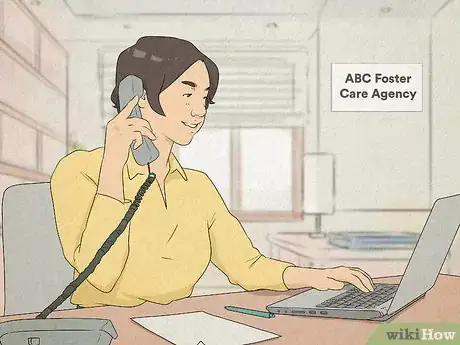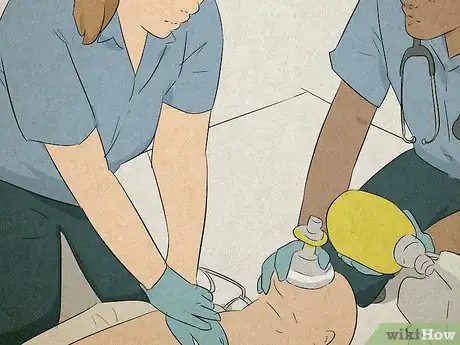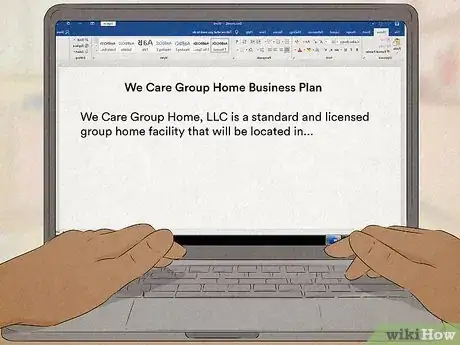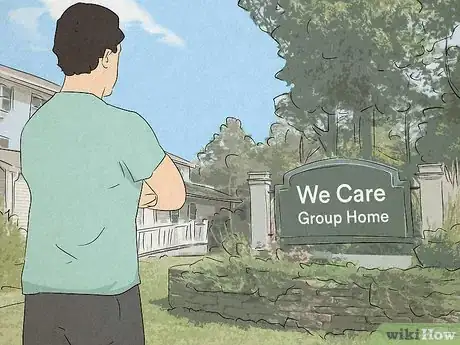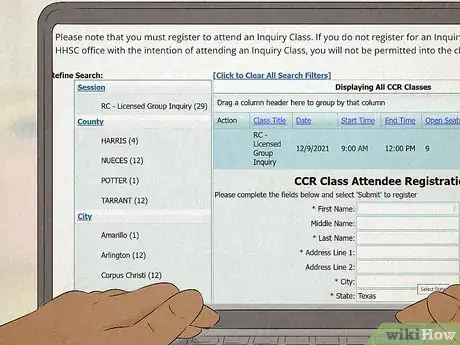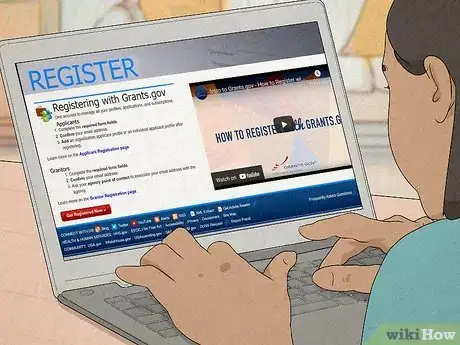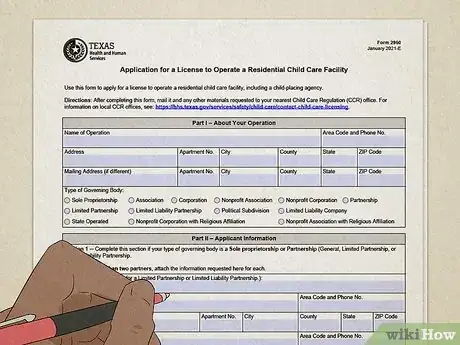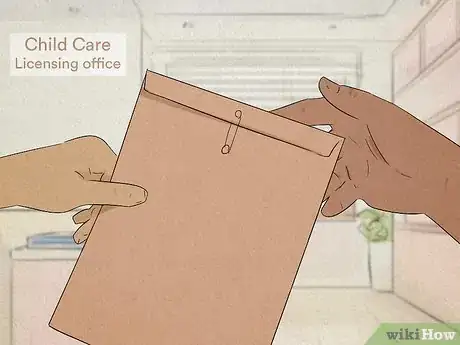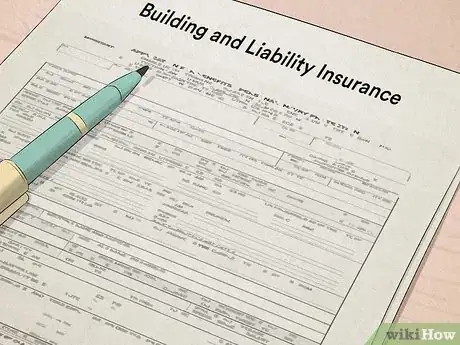This article was co-authored by wikiHow staff writer, Janice Tieperman. Janice is a professional and creative writer who has worked at wikiHow since 2019. With both a B.A. and M.A. in English from East Stroudsburg University, she has a passion for writing a wide variety of content for anyone and everyone. In her free time, you can find her working on a new crochet pattern, listening to true crime podcasts, or tackling a new creative writing project.
There are 17 references cited in this article, which can be found at the bottom of the page.
This article has been viewed 7,613 times.
Learn more...
Are you hoping to make a difference in a child’s life? If you live in Texas, your help is sorely needed—in January 2019 alone, there were nearly 30,000 kids in the foster care system.[1] Starting a foster home is definitely a big financial and time commitment, but don’t worry. We’re here to walk through the foster parent application process from start to finish. We’ve also got you covered if you have your heart set on opening a children’s group home in the Lone Star state.
Steps
Foster Parent Requirements
-
1Apply to be a foster parent for the difference you’ll make in a child’s life. Foster care is an incredibly rewarding experience, but you are essentially signing on to be a child’s guardian. While you do get stipends for being a foster parent, this money is actually a reimbursement for childcare costs, not a source of side income.[2]
- In Texas, foster parents get a monthly payment between $812 and $2,773 for every child they care for.[3] You do get a larger check by caring for multiple kids at once, but Texas law limits foster care households to 6 total children, including kids who are already living at your home.[4]
- Foster homes create a tight-knit, family-like setting for displaced kids, while group homes are designed to care for small groups of kids under 1 roof.[5] Keep in mind that the Federal Family First Prevention Services Act of 2018 prioritizes traditional foster family placements over group homes.[6]
-
2Be 21 or older and financially comfortable to meet Texas’s foster parent requirements.[7] “Financially comfortable” doesn’t mean that you have to be flushed with cash, but your household finances have to be stable enough to support a new member of the family.[8]
- You can be a single, married, or divorced foster parent. Bear in mind that foster agencies will ask for legal proof if you’re currently married or divorced.[9]
Advertisement -
3Pick a foster care agency to partner with. Search online to see what kind of foster care agencies are in your area. Call and visit multiple agencies before settling on one to work with. You’ll be working with them a lot once you become a foster parent, so you want to make sure it’s a good match![10]
- You can find a list of Texas foster care agencies here: https://www.childwelfare.gov/nfcad/
- Foster care agencies can either be public or private, but both are equally qualified to help you along your journey as a foster parent. The main difference is that public agencies are managed on a county level, while private foster care agencies are—you guessed it!—privately managed. There isn’t a major difference between the two, though some private agencies may take their mission statement and values in a different direction.[11]
-
4Submit an application and background check with a foster care agency. In Texas, foster care applications often include an FBI-level background check for you and anyone else you live with. Once your application and background check get approved, you’re ready to move on to the next phase of the application process.[12]
- Your application helps your foster care agency get to know a little bit more about your background and overall lifestyle.
-
5Go through a home study and inspection with your agency. The home study usually lasts between 3 and 6 months, and is the most time-consuming of the application and licensing process.[13] During this study, a caseworker will take an in-depth look at your and household, including your past experience with kids, your regular routines, your educational background, and more.[14] At the end of the study, the caseworker sends in a report based on their findings.[15]
- A home study can feel pretty overwhelming, but it has the best interests of both you and your future foster children in mind. After the study, the caseworker can get a better idea of what kids your household is most compatible with.[16]
-
6Provide references that the agency can call. Call up some of your relatives, friends, and close co-workers to see if they’d be interested in being a character reference for you. Let them know that, if they agree to your request, a caseworker will call them up and ask some questions about you.[17]
-
7Complete at least 35 hours of foster parent training. Texas’s Child Protective Services (CPS) group runs a state-mandated training program called PRIDE (Parent Resource Information Development Education). During PRIDE training classes, you’ll learn specific information about how to correctly discipline kids, how to work with abused and neglected kids, and much more. [20]
-
8Get First Aid and CPR training. The Texas government requires all foster parents to be prepared for at-home emergencies, including first aid and CPR. Check the American Red Cross website to find certification classes in your area.[23]
- Sign up for an official certification class here: https://www.redcross.org/take-a-class
-
9Start foster parenting after receiving your license. Wait for your caseworker to send in their home study report to a licensing agency, who will print and issue your license. You won’t be able to officially care for any foster kids until you have an actual copy of this license.[24]
Children’s Group Home Requirements
-
1Draft a business plan for your future group home. A business plan transforms your big idea into an actionable and approachable project.[25] Use your business plan to outline all of the fine print that your group home will need to run properly, including the niche your children’s group home will serve. Here’s a sample outline that you can follow:[26]
- Executive summary
- Company description
- Market analysis
- Organization and management
- Services offered
- Marketing and sales
- Funding request
- Financial projections
-
2Purchase or rent a building that’s big enough to house up to 12 kids.[27] Check out the local housing market and see if there are any large homes, facilities, or other big buildings available. Keep an eye out for properties available near family neighborhoods—geographically speaking, Texas towns and cities are pretty widespread, so a residential location could make your group home easier to get to.[28]
- Meet with your county’s child welfare agency to make sure that your group home meets all state-specific requirements.[29]
- Double-check with the local zoning officials in your area to make sure that your chosen property can be zoned as a business.[30]
- Make sure that your facility lines up with the fire building codes, too.
-
3Pick up the necessary permits required by your county. Apply for building permits at your local government building. Then, stop by the nearest courthouse to see what particular permits you need for a children’s group home.[31]
- The permit application process varies by city and town. Check out your local government website for more information.
- Check out this PDF for more specific advice about license and permits in Texas: https://gov.texas.gov/uploads/files/business/2020TexasLicensesPermits.pdf
-
4Go to a 24-Hour Residential Pre-Application class. In Texas, people who run group homes are also called “24-hour residential child care providers.” To become a “provider,” you need to register and attend a free pre-application class, which walks you through the application process and workload needed to run and maintain a group home.[32]
- During this class, you’ll learn the ins and outs of the application process, along with all that’s involved in successfully running a group home.
- Pre-application classes are organized by county and are between 2.5 to 3 hours long. You can register here: http://www.dfps.state.tx.us/Child_Care/Search_Texas_Child_Care/CCLNET/Source/eApplication/ResidentialCareRegistration.aspx.
-
5Apply for grants through Texas’s Department of Health and Human Services (HHS). Financing your own group home is a big undertaking, but the state government might be able to help. Check out the HHS grant webpage to see what kinds of grant opportunities are available: https://apps.hhs.texas.gov/pcs/rfa.cfm
- You can also apply for grants at the federal level through the National Institute of Health: https://grants.nih.gov/grants/how-to-apply-application-guide.html.
-
6Hire good staff for your facility. Employee requirements ultimately depend on the role that you’re trying to fill. A director needs plenty of previous leadership experience at a different childcare center, while all standard employees need to be at least 18 with a high school diploma or GED. Check out more specific standards and requirements in this PDF manual: https://www.hhs.texas.gov/sites/default/files/documents/doing-business-with-hhs/provider-portal/protective-services/ccl/min-standards/chapter-746-centers.pdf
-
7Fill out the entire license application and other required forms. Form 2960, also known as the “Application for a License to Operate a Residential Child Care Facility,” is the backbone of the application process. This 11-part application includes info about your operation, info about you, the estimated child population, the type of operation you’ll be running, permit history, and more. [33] You can find the form here: https://www.hhs.texas.gov/laws-regulations/forms/2000-2999/form-2960-application-a-license-operate-a-residential-child-care-facility. You’ll also need to fill out:
- Form 2819 ( Licensing Governing Body/Administrator or Executive Director Designation): https://www.hhs.texas.gov/laws-regulations/forms/2000-2999/form-2819-residential-child-care-licensing-governing-bodyadministrator-or-executive-director
- Form 2760 (Controlling Person - Child Care Licensing): https://www.hhs.texas.gov/laws-regulations/forms/2000-2999/form-2760-controlling-person-child-care-regulation
-
Form 2985 (Affidavit for Applicants for Employment with a Licensed Operation or Registered Child-Care Home): https://www.hhs.texas.gov/laws-regulations/forms/2000-2999/form-2985-affidavit-applicants-employment-a-licensed-operation-or-registered-child-care-home
- This form legally confirms that your potential employees aren’t criminals. Each individual employee will have to fill one out.
-
Form 2971 (Child Care Licensing Request for Background Check): https://www.hhs.texas.gov/laws-regulations/forms/2000-2999/form-2971-child-care-licensing-request-background-check
- This form requests background checks for all of the potential employees at your group home. It costs $2 to process each employee. Your employees will need to be 100% cleared before they can work at your facility.[34]
-
8Submit your application and forms and wait to hear back from the nearest Child Care Licensing (CCL) office. Drop off all the completed forms at your local CCL office—these are the people who will be going through your applications and forms to make sure everything looks good. [35]
- Find your nearest CCL office here: https://www.hhs.texas.gov/services/safety/child-care/contact-child-care-licensing
-
9Pass a building inspection to get your license. After going through your application and forms, CCL employees will head to your facility and make sure everything looks good. These employees will give you your license after your building receives the all-clear.[36]
- Contact your local CCL office if you have any questions about this inspection.
- Texas’s Department of Health and Human Services doesn’t list a specific licensing fee on their website. Check with your nearest CCL office to get an idea of how much this will cost, or check the materials you picked up at your Pre-Application class.
-
10Buy building and liability insurance policies for your group home. Calculate how much insurance coverage you’ll need for your group home before you officially open for business. Then, stop by a Texas-based liability insurance group to buy a policy for your facility.[37]
-
11Register your group home online with your operation number after you get approved. Your local CCL office will send you an official operation number for your group home after your facility and application are approved. Log onto the Child Care Regulation (CCR) portal to officially register your group home.[38]
- You can get to the portal here: https://www.dfps.state.tx.us/Child_Care/Search_Texas_Child_Care/CCLNET/Source/Provider/ppCCLRegister.aspx
- Your CCR account makes it easy to send in background checks, pay fees, confirm insurance, and more.
References
- ↑ https://www.adoptuskids.org/adoption-and-foster-care/how-to-adopt-and-foster/state-information/texas
- ↑ https://adoption.org/foster-parents-get-paid-2
- ↑ https://imprintnews.org/child-welfare-2/texas-lawmaker-wants-to-give-kin-caregivers-a-raise/52701
- ↑ https://tfifamily.org/requirements-foster-parent-in-texas/
- ↑ https://www.acf.hhs.gov/cb/faq/foster-care2
- ↑ https://www.childwelfare.gov/topics/outofhome/group-residential-care/
- ↑ https://www.adoptuskids.org/adoption-and-foster-care/how-to-adopt-and-foster/state-information/texas
- ↑ https://adoption.org/need-prepare-adopt-child-2
- ↑ https://www.adoptuskids.org/adoption-and-foster-care/how-to-adopt-and-foster/state-information/texas
- ↑ https://nfpaonline.org/foster
- ↑ https://fosterandadopt.jfs.ohio.gov/wps/portal/gov/ofc/foster-care/becoming-a-foster-parent/choosing-a-foster-care-agency
- ↑ https://tfifamily.org/requirements-foster-parent-in-texas/
- ↑ https://www.adoptuskids.org/adoption-and-foster-care/how-to-adopt-and-foster/getting-approved/home-study
- ↑ https://www.dfps.state.tx.us/Adoption_and_Foster_Care/Get_Started/steps.asp
- ↑ https://www.adoptuskids.org/adoption-and-foster-care/how-to-adopt-and-foster/getting-approved/home-study
- ↑ https://www.dfps.state.tx.us/Adoption_and_Foster_Care/Get_Started/steps.asp
- ↑ https://nfpaonline.org/foster
- ↑ https://www.adoptuskids.org/adoption-and-foster-care/how-to-adopt-and-foster/state-information/texas
- ↑ https://jri.org/blog/foster-care/become-licensed-foster-parent-references
- ↑ https://www.dfps.state.tx.us/Adoption_and_Foster_Care/Get_Started/steps.asp
- ↑ https://tfifamily.org/requirements-foster-parent-in-texas/
- ↑ https://www.dfps.state.tx.us/Adoption_and_Foster_Care/Get_Started/steps.asp
- ↑ https://tfifamily.org/requirements-foster-parent-in-texas/
- ↑ https://nfpaonline.org/foster
- ↑ https://bizfluent.com/how-7256274-open-group-home-texas.html
- ↑ https://www.sba.gov/business-guide/plan-your-business/write-your-business-plan
- ↑ https://www.acf.hhs.gov/cb/faq/foster-care2
- ↑ https://bizfluent.com/how-7256274-open-group-home-texas.html
- ↑ https://www.acf.hhs.gov/cb/faq/foster-care2
- ↑ https://bizfluent.com/how-7256274-open-group-home-texas.html
- ↑ https://bizfluent.com/how-7256274-open-group-home-texas.html
- ↑ https://www.hhs.texas.gov/doing-business-hhs/provider-portals/protective-services-providers/child-care-licensing/24-hour-residential-child-care-provider/become-a-24-hour-residential-provider
- ↑ https://www.hhs.texas.gov/laws-regulations/forms/2000-2999/form-2960-application-a-license-operate-a-residential-child-care-facility
- ↑ https://www.hhs.texas.gov/laws-regulations/forms/2000-2999/form-2971-child-care-licensing-request-background-check
- ↑ https://www.hhs.texas.gov/doing-business-hhs/provider-portals/protective-services-providers/child-care-licensing/24-hour-residential-child-care-provider/become-a-24-hour-residential-provider
- ↑ https://www.hhs.texas.gov/doing-business-hhs/provider-portals/protective-services-providers/child-care-licensing/24-hour-residential-child-care-provider/become-a-24-hour-residential-provider
- ↑ https://bizfluent.com/how-7256274-open-group-home-texas.html
- ↑ https://www.hhs.texas.gov/doing-business-hhs/provider-portals/protective-services-providers/child-care-licensing/24-hour-residential-child-care-provider/become-a-24-hour-residential-provider





